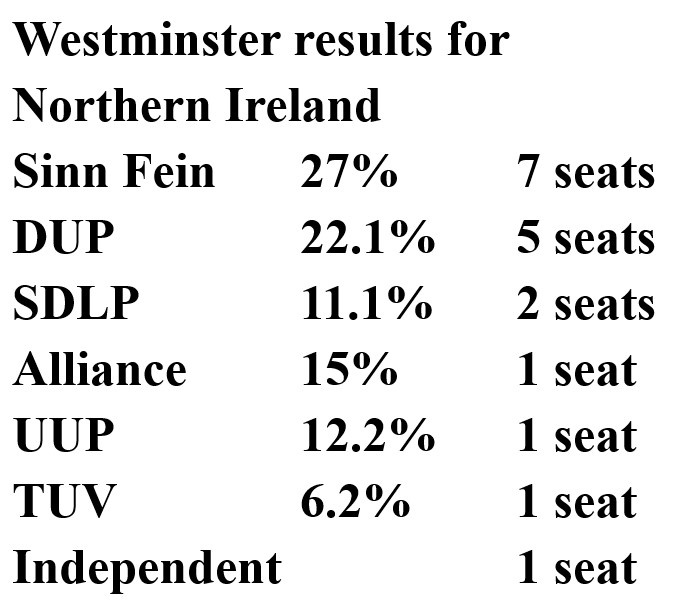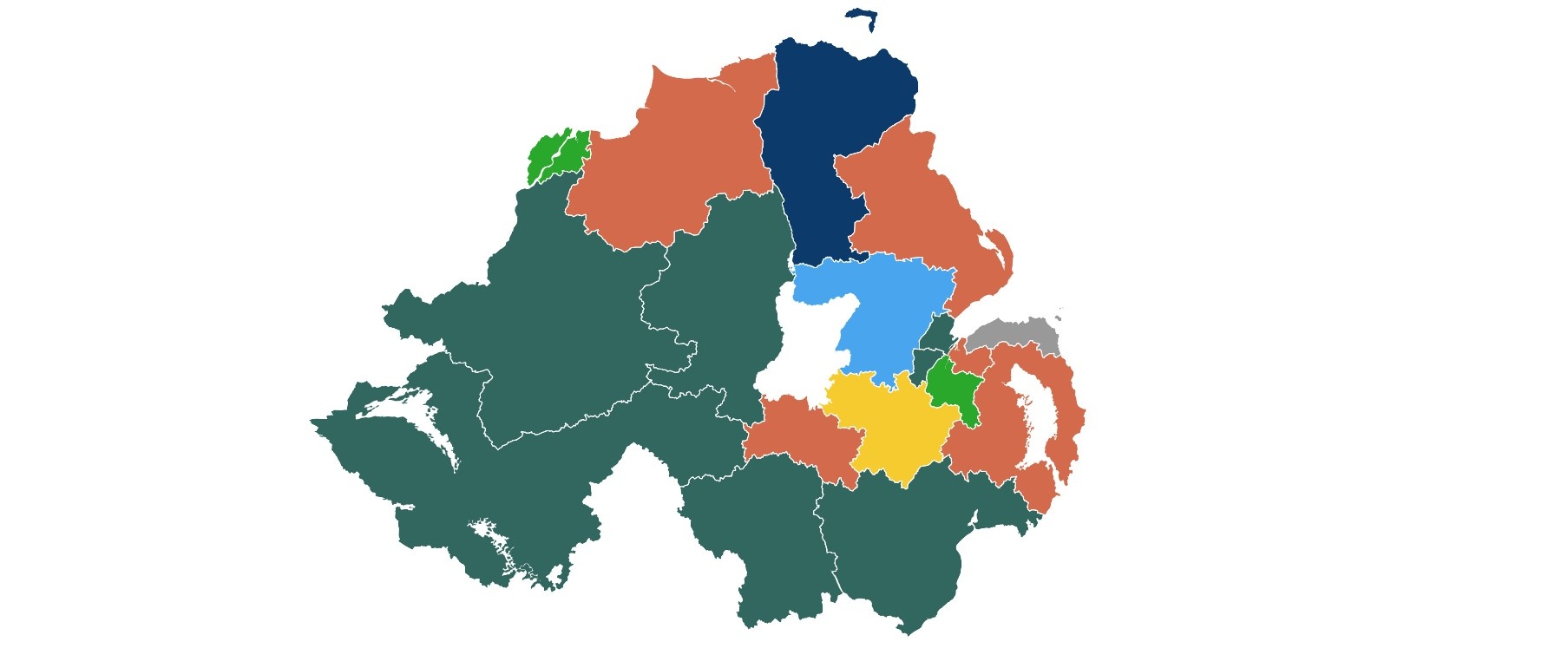By Harry Hutchinson, Mid Ulster Trade Union Council.
Now at local, Assembly level and at Westminster, Sinn Fein is the largest party in Northern Ireland. Last Thursday it won 27% of the vote. But it was a nervous election for the party, because just weeks ago Sinn Fein in the South of Ireland had suffered a huge setback as their expected support halved in the local government elections when it received only 12%.
It is believed that this fall in support in the Republic was due to Sinn Fein leaders attending the St Partrick’s day celebrations in the US. Shaking hands with “genocide Joe” is believed to have significantly damaged Sinn Fein in the South.
In the Westminster election, Sinn Fein carried out a low key campaign, even limiting the media coverage of vice-president Michelle O’Neill, in order to protect her from public outrage and possible abuse over the genocide in Gaza. However, their election machine pulled out all the stops and turned out the Sinn Fein support, much to the relief of the party leaders.

Sinn Fein had seven MPs returned, to only five for the Democratic Unionist parties (DUP). In a master-stroke Sinn Fein stood the former general secretary of the Royal College of Nurses, Pat Cullen, in Fermanagh and South Tryone constituency, where she outperformed the DUP and increased the Sinn Fein vote by 4% from the last election.
Unionists are now in turmoil
The DUP lost three seats, one being North Antrim, once held by the late Reverend Ian Paisley and his son for over 50 years. The election came close to a meltdown for the DUP, as two further longstanding Westminster MPs came to within a few hundred votes of getting over the line. DUP support fell by 12%, as voters failed to turnout as expected.
Unionists remain divided over sharing power in the Northern Ireland Assembly with Sinn Fein and there are divisions caused by the new trading links between Northern Ireland and the rest of the UK post Brexit. The small Traditional Unionist Voice (TUV) party, who were alined with Farage’s Reform UK in Britain, (although Farage personally endorsed two DUP candidates) won their first ever Westminster seat.
Much of the decline of the DUP has been due to the scandal surrounding the former leader, Jeffrey Donaldson, a longstanding Westminster MP, who was forced to resign and now faces trial on serious charges of sexual abuse, including rape.
Disillusionment among voters
The turnout in the Northern Irish election was only 57.4%, the lowest since the foundation of the six-county state a hundred years ago. The fall in votes for the DUP, over its disgraced leader, was certainly a factor. But disillusionment is widespread and people have little confidence in the Northern Ireland parties, while public services, particularly the NHS remain critically underfunded.
It is only the National question and sectarian division that continue to prop up these Nationalist and Unionist parties – all pro-capitalist – from collapse. The struggle of workers for their living standards is set to continue. There are planned strikes ahead over pay and working conditions in the public sector.
The trade union movement will fight for the interests of its members no matter what the balance of votes for Westminster. What we need for the future is a political movement that is not based on sectarianism, but on the trade unions, and the common needs and common interests of the working class of all communities.



